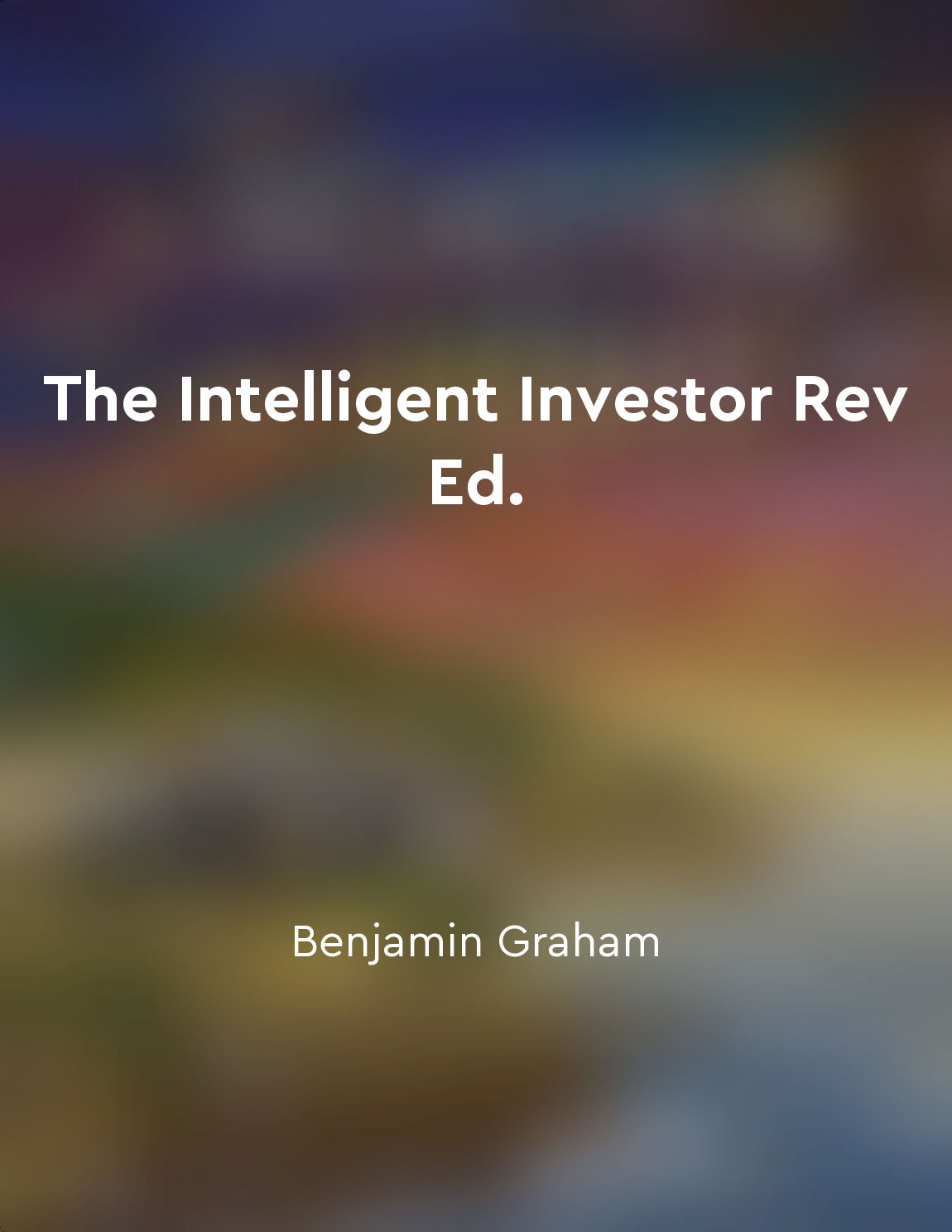Economic fundamentals were overlooked from "summary" of The Great Crash 1929 by John Kenneth Galbraith
The most striking and significant oversight of the period before the Great Crash of 1929 was the failure to adequately consider economic fundamentals. As stock prices soared to dizzying heights, there was a pervasive sense of euphoria among investors and speculators alike. However, this exuberance was not grounded in a thorough analysis of the underlying economic conditions. One of the fundamental principles of investing is to carefully evaluate the financial health of companies before making investment decisions. In the years leading up to the crash, this principle was largely ignored in favor of speculative trading based on the expectation of ever-increasing stock prices. As a result, many investors were caught off guard when the market inevitably turned. Additionally, the prevailing attitude of the time was one of unwavering optimism and confidence in the market's ability to continue its upward trajectory indefinitely. This irrational exuberance led many investors to overlook warning signs and red flags that should have prompted a more cautious approach. Furthermore, the financial instruments and practices that were popular at the time, such as buying on margin and trading in unregulated over-the-counter markets, only served to exacerbate the situation. These practices introduced significant risk into the market and allowed for the rapid transmission of panic and uncertainty when the crash finally occurred. In hindsight, it is clear that a more prudent and realistic assessment of economic fundamentals could have helped to prevent the catastrophic consequences of the Great Crash. By failing to take into account the underlying economic realities, investors and speculators set themselves up for a devastating fall when the market inevitably corrected itself.Similar Posts
Caution is advised in financial markets
The wise investor, always alert to the caprices of the financial markets, understands the necessity of caution in navigating th...
Market volatility persisted
The characteristic of market volatility persisted is particularly notable during the time surrounding the Great Crash of 1929. ...
Human nature drives investors to irrational behavior during euphoric periods
Human nature is such that during periods of financial euphoria, investors tend to exhibit irrational behavior. This phenomenon ...
Globalization leads to economic instability
Globalization has undoubtedly brought about a new era of interconnectedness and economic growth. However, what many fail to rec...
The financial industry profits from the herd mentality of investors
The financial industry is famously adept at profiting from the herd mentality of investors. When a particular investment become...
Monitor your investments regularly
Regularly monitoring your investments is crucial to successful investing. This means keeping a close eye on the companies you'v...

Understand the difference between investing and speculating
Investing and speculating are two distinct activities in the world of finance. Understanding the difference between the two is ...
Consumer spending declined
The decline in consumer spending was a pivotal factor in the economic downturn of 1929. As people began to lose confidence in t...
Caution is advised in financial markets
The wise investor, always alert to the caprices of the financial markets, understands the necessity of caution in navigating th...
